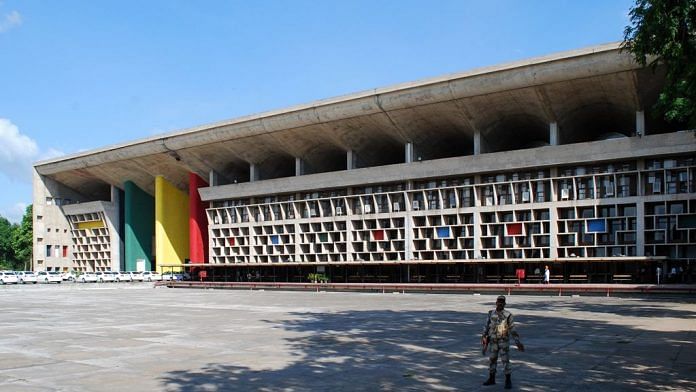New Delhi: The Bar Council of India, which is the apex regulator of the legal profession and education in the country, has decided to challenge a high court order that quashed its resolution to impose a three-year moratorium on opening of new law colleges.
According to sources in the council, chairman Manan Kumar Mishra has asked the legal team to file an appeal against the Punjab and Haryana High Court order.
On 24 December, the court had held that the council did not have the power to grant or reject approval to establish new legal educational institutions under the Advocates Act.
A single bench of Justice Rekha Mishra also noted that BCI’s resolution violated someone else’s fundamental right to practise any profession or carry out any trade or occupation.
The resolution was set aside after the BCI failed to submit data on the law colleges that have been shut down in the past due to non-compliance with council’s circulars and regulations.
However, a source in the BCI noted that a single-judge bench of the HC could not have asked for such information because it is not a trial court that can summon for evidence.
He added that the moratorium on granting fresh licences for law colleges was proposed by the council to check the infrastructure of existing institutions, after it received complaints against many of them over lack of adequate teaching facilities.
Ved Sharma, vice-chairman of the BCI, also confirmed that the council will file an appeal against the HC order.
“The HC has erroneously held that BCI is powerless under the law to put a moratorium. As a regulator we have every right to control opening of new colleges because it is the council’s responsibility to make sure the quality of legal education does not suffer,” Sharma told ThePrint.
Also read: Lawyers urge Amit Shah to take action against Delhi Police raid at Mehmood Pracha’s office
‘No legal justification for moratorium’
The HC order came on a petition filed by the Chandigarh Educational Society. The society had applied for permission to open a new law college in Jhanjheri, Mohali, in December 2019 but was not given approval till May this year.
In May, the society moved HC claiming that all procedural requirements were fulfilled but the BCI had not made a decision regarding their application. It argued the BCI had no legal authority to ban the establishment of new institutions.
In her order, Justice Mittal noted that there was nothing amiss with the BCI issuing guidelines and circulars asking institutes to comply with its rules during the grant of approval for new colleges. However, she added, the regulatory body under this pretext could not impose a complete ban on opening of new institutes to impart legal education.
According to the order, the BCI had failed to “advance any arguments, much less meaningful, to give legal justification in regard to its resolution” to impose the moratorium for three years.
The bench went on to direct BCI to make a decision on the petitioner’s application within three months.
Also read: ‘Indirect attack on the legal fraternity’ — why lawyers are also opposing new farm laws
Legal education needs improvement in India: HC
Justice Mittal, however, did accept the BCI’s contention that steps needed to be taken to improve the standard of legal education in the country.
She noted: “Before parting with this order, I would like to express that the BCI should seriously dilate on the issue of maintaining standard of legal education.”
The judge noted that many new entrants in legal profession are not upto the mark in drafting of petitions or assisting the court. “Some of them are not confident enough to speak court language.”
Justice Mittal asked the BCI to take steps to ensure practical training to law students. She suggested the council look into creating a portal and a nodal agency to ensure compliance of BCI instructions, guidelines and rules by the centres of legal education.
‘BCI can control the growth of unwanted colleges’
According to Sharma, the resolution to ban new institutions for the next three years was taken to ensure the existing 1,500 legal institutions augment their infrastructure.
“As a regulator and controller, BCI is empowered to control the growth of unwanted colleges. This decision to put a cap was taken because colleges had started mushrooming, with some flouting the rules. It became difficult to inspect so many colleges, leading the regulator to cap the number of institutions,” Sharma explained.
On BCI failing to produce material before the HC, Sharma said the court should not have asked for evidence, rather it should have looked at the intention of the statutory body.
“This case was heard by a writ court, which as per the law should not ask for such data,” Sharma said.
Also read: Bar Council appeals to PM Modi for allowance to financially weak lawyers amid lockdown



